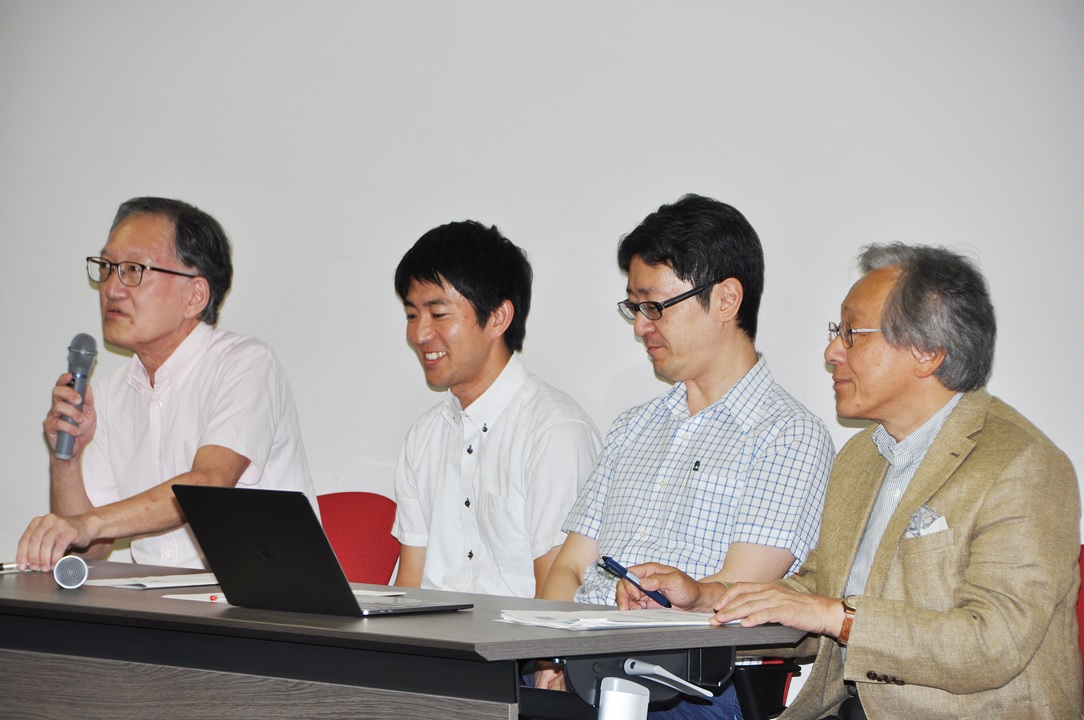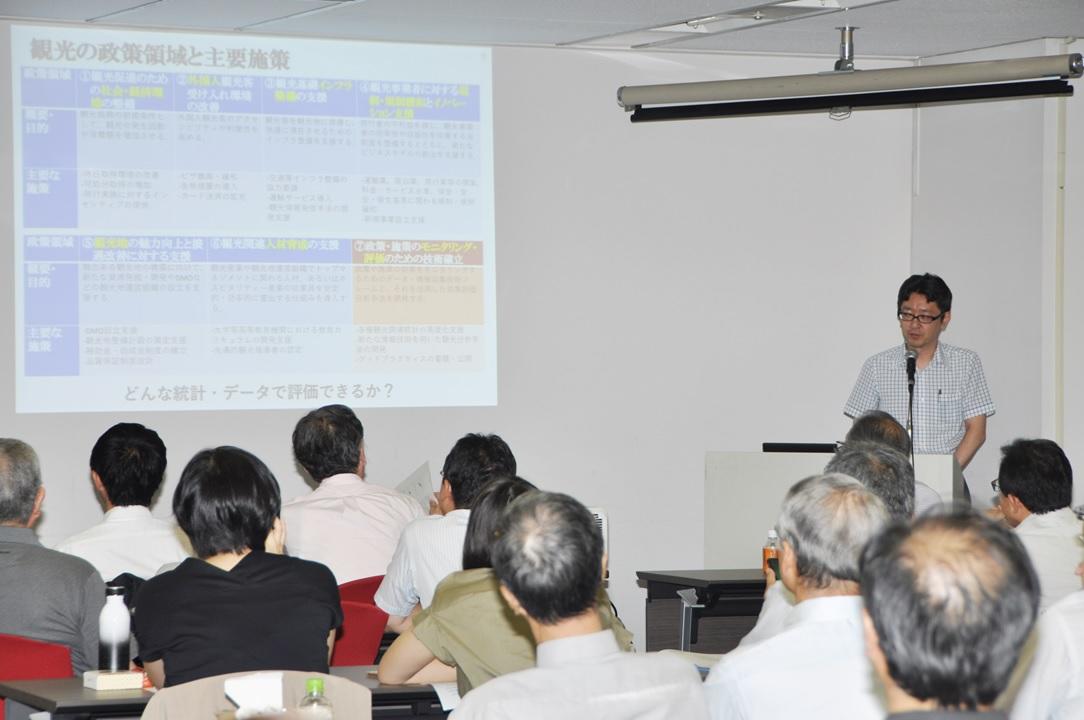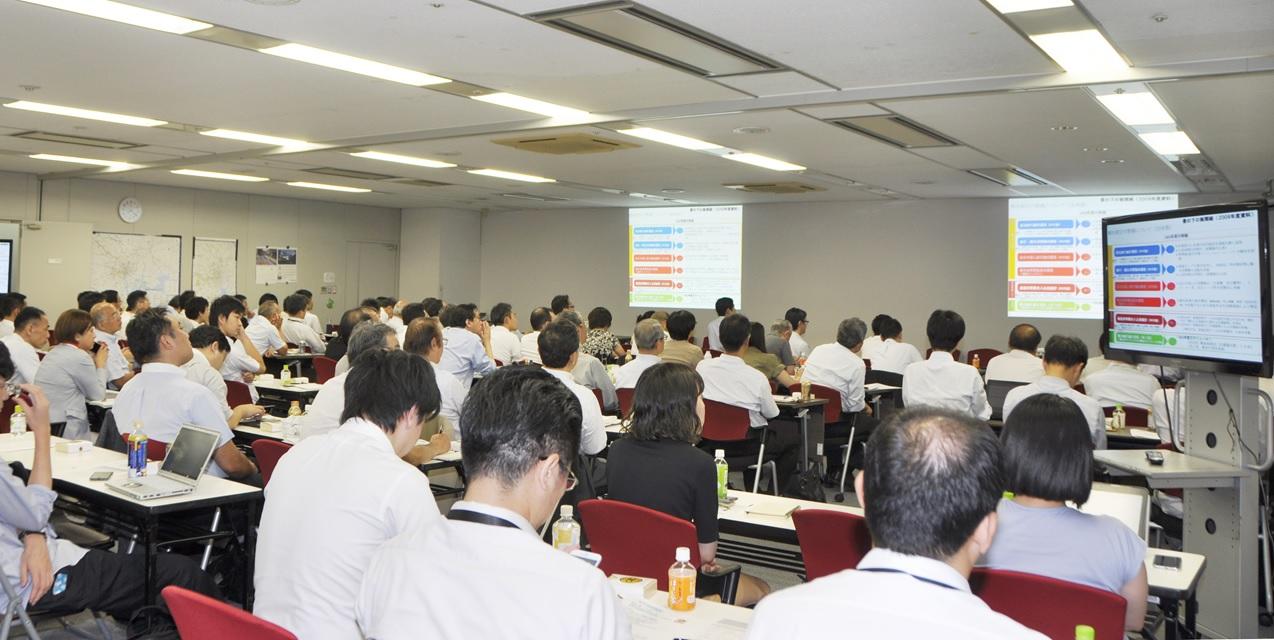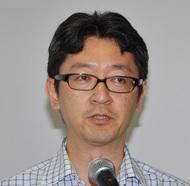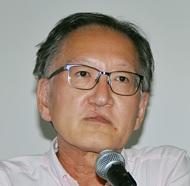Discussing ‘useful’ tourism statistics for DMO
- Colloquium
- Tourism
The 130th Transport Policy Colloquium
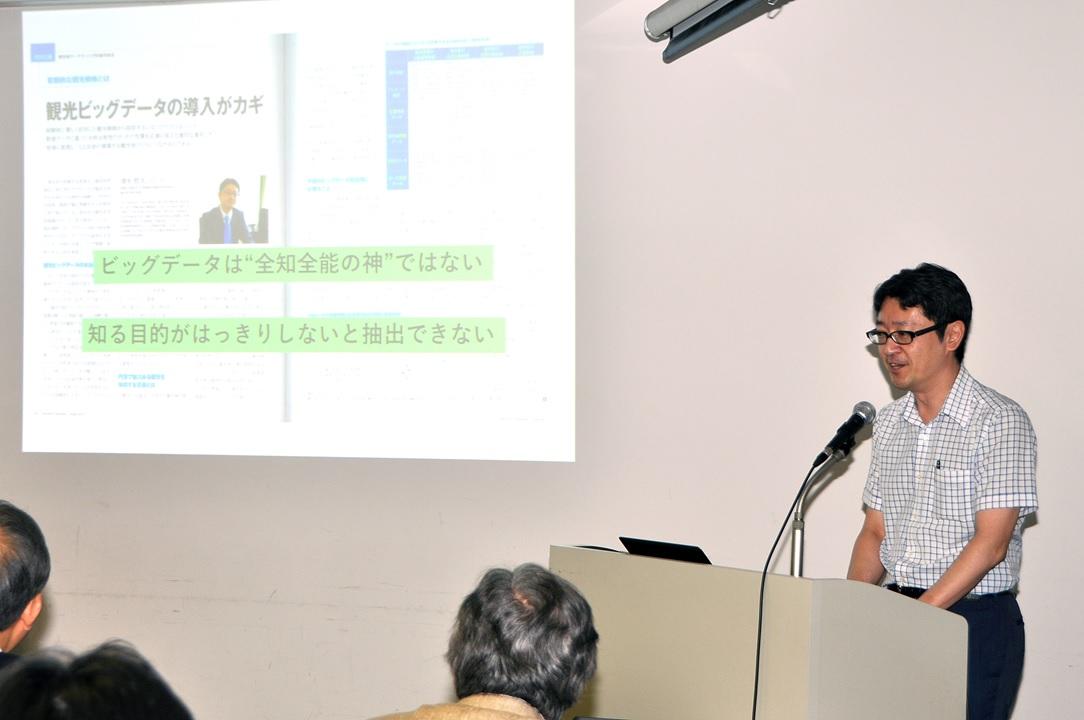

| Date / Time | Tue, Jul 30,2019 18:00~20:00 |
|---|---|
| Venue | Japan Transport and Tourism Research Institute (JTTRI) (Tokyo) |
| Event Number | The 130th |
| Theme | Discussing ‘useful’ tourism statistics for DMO |
| Lecturer | "How do you think about tourism statistics in the big data era?" Tetsuo Shimizu Advisor for Research、Japan Transport and Tourism Research Institute (JTTRI) Professor, Department of Tourism Science, Tokyo Metropolitan University "Proposal for improving the environment for utilizing the Travel Statistics Survey. To what extent, can it be used for KPI evaluation of DMO?" Takeshi Kurihara Visiting Research Fellow、Japan Transport and Tourism Research Institute (JTTRI) Associate Professor, Department of International Tourism Management, Toyo University |
| Commentator | Tetsuro Hyodo Professor, Department of Logistics and Information Engineering, Tokyo University of Marine Science and Technology |
Event Summary
The tourism statistics maintained by the Japan Tourism Agency have been enhanced over the last 10 years.
Regional tourism promotion organizations such as DMO are required to establish a management system through KPI evaluation, and there is great expectation to publish the tourism statistics on a tourist destination basis, but it is not always based on needs and issues of regional tourism promotion organizations.
In addition, the expectation for the utilization of big data is increasing rapidly, but its methodology remains a major research issue.
The first half of this colloquium reviews the current state of DMO-related policies and tourism statistics development in Japan, and raises issues regarding the future development of tourism statistics based on the emergence of big data.
In the second half, after showing the results of a survey on the issues of utilizing data from regional tourism promotion organizations, the possibility of publishing the tourism statistics on a tourist destination basis and collaborating with big data for the purpose of KPI evaluation will be reported using an example of the Travel Statistics Survey.
DMO:Destination Management/Marketing Organization
KPI:Key Performance Indicator
Program of the seminar is as the following
| Opening Remarks 1 |

Masafumi Shukuri |
|---|---|
| Opening Remarks 2 |

Hirotaka Yamauchi |
| Lecturer | |
| Lecturer |
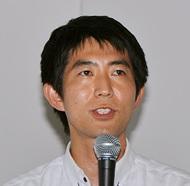
Takeshi Kurihara " Proposal for improving the environment for utilizing the Travel Statistics Survey. To what extent, can it be used for KPI evaluation of DMO?" Bio (Japanese) file (Japanese) |
| Commentator | |
| Question and Answer |
 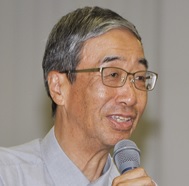 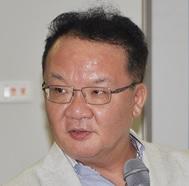
|
Outline of the seminar
At the colloquium on the day, Professor Shimizu explained the background of this research and the challenges facing Japan's DMO policy, such as continuous collection and analysis of data and the formulation of a strategy (branding) based on a clear concept backed by data and KPI. , he presented his awareness of the problem that existing statistics could not be used.Associate Professor Kurihara showed the possibility of supplementation by the size of the additional survey and the use of big data, analyzing the case in which DMO smaller than the prefecture level used the existing statistics.
Based on the above presentations, the followings were proposed as the result of the joint research.
■Recommendations to the Japan Tourism Agency
・Support for systematic accumulation of big data and open use
・Establishing a communication channel with regional tourism promotion organizations for grasping their needs and human resource education
・Developing coordinator resources who are familiar with tourism policies, statistics and big data cooperating with academia.
■Recommendations for higher education institutions that provide tourism education programs
・Introducing a course to raise awareness about the utilization of statistics and big data
■Recommendations for tourism promotion organizations
・Using tourism statistics for mandatory KPI assessment to devote their human and financial resources for (digital) marketing promotion
In addition, Professor Hyodo commented on the necessity of having a public tourism research organization in order to secure continuity of tourism statistics, hear voices from tourist destinations, open big data, reduce the cost of big data and share the result of analysis and methodologies.
During the Q and A session, there was a lively discussion about the need to understand the actual travel conditions (actual traffic conditions) combined with tourism statistics, the opening of big data, and various other opinions and questions.
On the day of the event, there were more than 95 participants from research institutes such as universities, the Ministry of Land, Infrastructure, Transport and Tourism, local governments, transportation companies, consultants, and general contractors.
